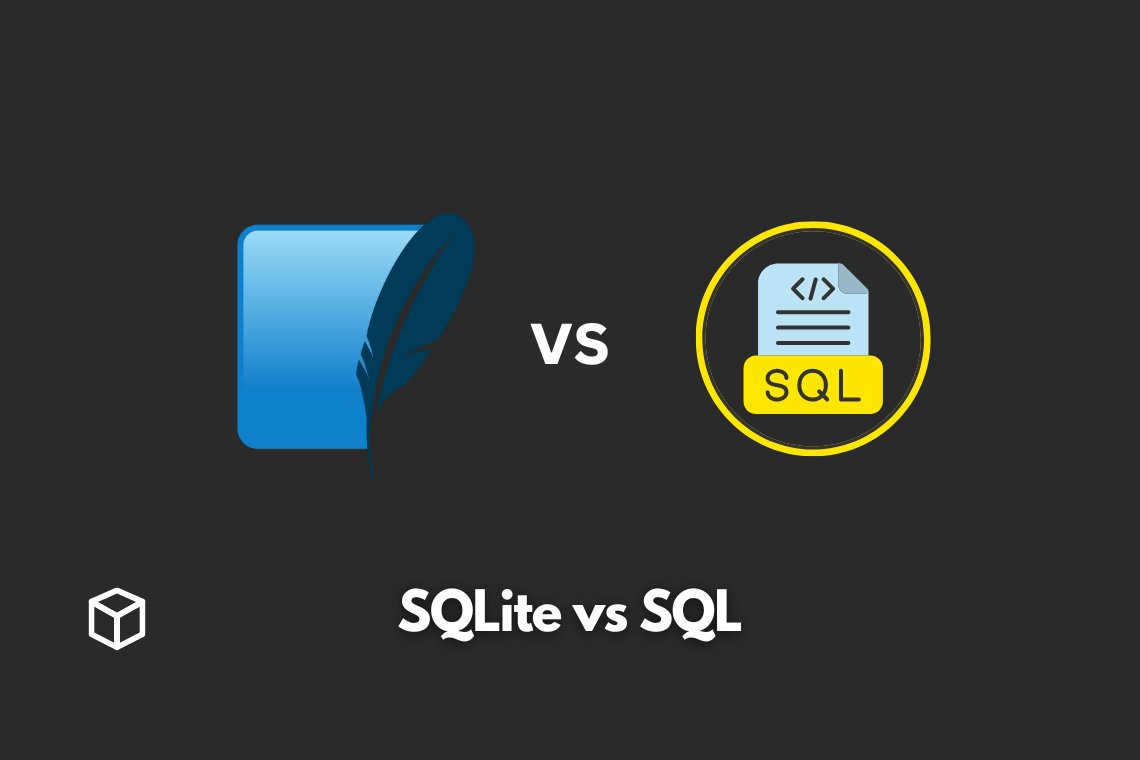SQL and SQLite are both popular options for managing databases, but they serve different purposes and are used in different environments.
In this article, we will explore the differences between SQL and SQLite and provide context for when one option may be a better choice over the other.
What is SQL?
SQL, or Structured Query Language, is a programming language used to manage and manipulate relational databases.
It is the most common language used for working with databases and is supported by most relational database management systems (RDBMS).
SQL is used for a variety of tasks, including creating and modifying tables and indexes, inserting, updating, and retrieving data, and managing users and permissions.
Typical SQL Environment
SQL is typically used in a client-server environment, where a client, such as a web or mobile application, communicates with a server that hosts the database.
The server is responsible for managing and maintaining the database, and it can handle multiple clients and large amounts of data.
SQL is well-suited for use in enterprise environments, where high scalability and performance are required.
What is SQLite?
SQLite is a software library that implements a self-contained, serverless, zero-configuration, transactional SQL database engine.
It is a lightweight, embedded database engine that is used in a variety of applications, including mobile phones, web browsers, and embedded systems.
SQLite is often used as an alternative to a full-fledged RDBMS when a small, fast, and simple database is needed.
Typical SQLite Environment
Environment SQLite is typically used in embedded systems and mobile applications, where a small, fast, and simple database is needed.
Unlike SQL, SQLite does not require a separate server and can be embedded directly into the application.
This makes it well-suited for use in environments where resources are limited, such as mobile phones and embedded systems.
Comparison
While SQL and SQLite have some similarities, they are designed for different purposes and are used in different environments.
SQL is a powerful and flexible language that is well-suited for use in enterprise environments, while SQLite is a lightweight and simple database engine that is well-suited for use in embedded systems and mobile applications.
Features:
SQL is a powerful and flexible programming language that provides a wide range of features for managing and manipulating databases.
It supports complex queries, transactions, and advanced features like stored procedures and triggers.
SQLite, on the other hand, is a simple and lightweight database engine that provides a subset of SQL features.
Performance:
SQL is designed for high scalability and performance, and it can handle large amounts of data and multiple clients.
SQLite is designed for small and simple applications and is not suitable for high scalability and performance needs.
Scalability:
SQL is designed for high scalability and can handle large amounts of data and multiple clients.
SQLite is designed for small and simple applications and is not suitable for high scalability needs.
Pros and Cons
SQL is a powerful and flexible language that is well-suited for use in enterprise environments.
The main advantage of SQL is its ability to handle large amounts of data and multiple clients.
The main disadvantage of SQL is that it requires a separate server and can be complex to set up and maintain.
SQLite is a lightweight and simple database engine that is well-suited for use in embedded systems and mobile applications.
The main advantage of SQLite is its small size and ease of use.
The main disadvantage of SQLite is that it does not provide all the features of SQL and is not suitable for high scalability and performance needs.
Examples: SQL would be a better choice over SQLite in anenterprise environment where high scalability and performance are required, such as a large e-commerce website with a high volume of transactions.
SQLite, on the other hand, would be a better choice for a mobile app that needs to store small amounts of data on the device.
For example, a weather app that stores the user’s favorite locations.
Conclusion
In conclusion, SQL and SQLite are both popular options for managing databases, but they serve different purposes and are used in different environments.
SQL is a powerful and flexible language that is well-suited for use in enterprise environments, while SQLite is a lightweight and simple database engine that is well-suited for use in embedded systems and mobile applications.
Ultimately, the choice between SQL and SQLite will depend on the specific needs of your project.
It is important to consider factors such as scalability, performance, and ease of use when making your decision.
As always, it’s also important to do further research and experimentation to determine the best option for your specific needs.




